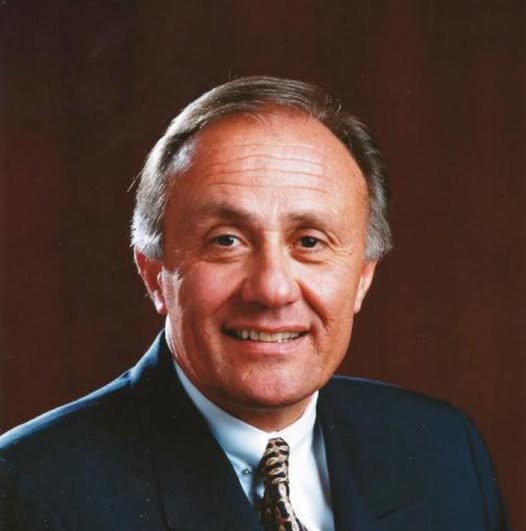Arthur A. Coia, Influential U.S. Labor Leader and Former LIUNA President, Dies at 82
PROVIDENCE, R.I. — Arthur A. Coia, a nationally recognized labor leader and longtime general president of the Laborers’ International Union of North America (LIUNA), has died at the age of 82.
Coia passed away over the weekend, according to a family announcement. A native of Providence, Rhode Island, Coia spent his life advocating for the rights and dignity of working people. Over the course of several decades, he rose to become one of the most prominent figures in the American labor movement, leading LIUNA through a transformative era.
From his earliest days, Coia was steeped in the values of labor and justice. His father, Arthur E. Coia, was also a labor leader, and the younger Coia followed a similar path—first as an attorney and later as a top union official. By 1993, Arthur A. Coia had become general president of LIUNA, representing more than 800,000 construction workers and public service employees across North America.
During his presidency, which lasted until 2000, Coia was known for modernizing union operations, enhancing member training programs, and expanding political engagement. He brought a polished and pragmatic leadership style to LIUNA, advocating for infrastructure investment, workplace safety, and labor protections at the highest levels of government.
“Arthur Coia was a visionary in the labor movement,” said a current LIUNA executive. “He understood the changing dynamics of labor and positioned LIUNA to grow and evolve while never losing touch with the everyday worker.”
Colleagues often noted his ability to bridge the gap between grassroots organizing and high-level policy strategy. Whether sitting at the negotiating table or testifying before Congress, Coia spoke with clarity and conviction, earning both admiration and attention in national labor and political circles.
His tenure was not without controversy. In the late 1990s, Coia faced a federal investigation regarding union finances and alleged ties to organized crime. He ultimately paid a fine for ethical violations but denied wrongdoing. Despite the legal challenges, Coia retained the loyalty of many LIUNA members, who viewed him as a fierce advocate for worker rights and union empowerment.
After retiring from the presidency in 2000, Coia remained active behind the scenes, advising labor leaders and maintaining his influence in political and philanthropic circles. He also became known for his passion for classic cars and was a familiar face at auto events across the Northeast.
In Providence, where his story began, news of his passing was met with both sadness and reverence. Many local leaders described him as a son of Rhode Island who never forgot his roots.
“He believed deeply in the dignity of labor,” said one longtime friend. “He fought hard, lived large, and left a mark on history.”
Coia’s life was defined by his dedication to labor solidarity. He helped lead LIUNA through a period of internal reform and external growth, strengthening its foundation for future generations. His voice helped shape federal infrastructure policy, labor law debates, and union best practices during a pivotal time in American workforce history.
He is survived by his family and a large network of union members, colleagues, and friends who continue to carry forward the work he dedicated his life to.
Funeral arrangements have not yet been announced. Tributes from labor organizations across the country are expected in the coming days.
As the labor movement confronts new battles in a changing economy, Arthur A. Coia’s influence remains etched in its foundation. He was a man who believed in the power of collective action, the necessity of worker protections, and the importance of unity in the face of adversity.
Arthur A. Coia is gone, but his fight—and his legacy—live on.

Leave a Reply